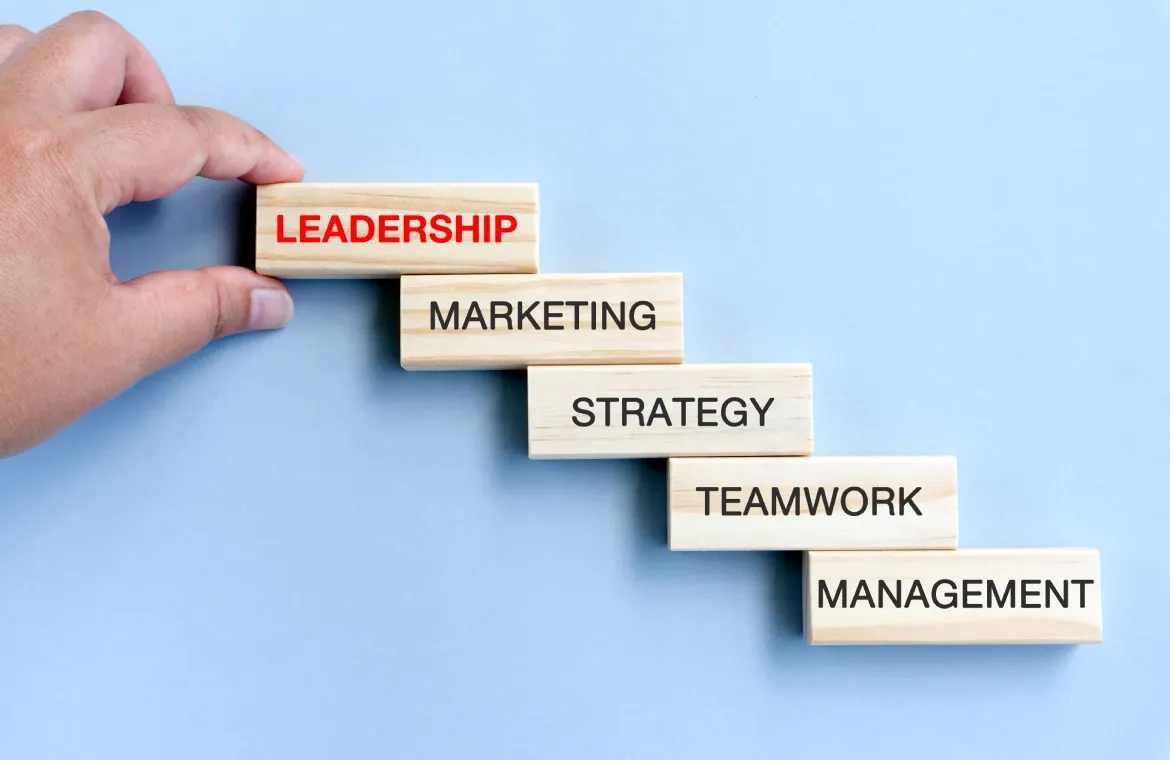Top Leadership Skills to Develop to Futureproof Your Career in 2026

Are you ready to lead in a world where adaptability, empathy, and AI fluency matter as much as experience? As the professional landscape rapidly evolves, so do the qualities that define great leaders. It's no longer just about delegating tasks or managing teams it's about inspiring innovation, navigating uncertainty, and building trust in hybrid, tech-driven environments.
As the gig economy expands and flatter, more flexible organizational structures become the norm, it's important to redefine effective leadership. In dynamic work environments, leadership responsibilities are extending to more individuals than ever. For example, you might be tasked with coordinating various team members on a project.
Think you're already prepared? Let’s test that. Imagine this: if you had to pick just one leadership skill to master before 2026 hits full swing, what would it be emotional intelligence, strategic vision, or digital literacy? Scroll down, reflect as you read, and by the end, you’ll not only have your answer, you'll have a roadmap to futureproof your career.
Top Leadership Skills for 2026
Modern workplaces need leaders with human-centred skills. These skills help build connections, show empathy, and support personal growth qualities that technology cannot replace.
1. Emotional intelligence
Emotional intelligence (EQ) is the life-blood of good leadership. It helps leaders recognise, understand, and manage emotions both their own and others'. Leaders who have high EQ care about their teams and go beyond basic interactions to understand their needs and feelings.
Research shows that leaders who focus on EQ create spaces where team members feel valued and take part in decisions. They see their work as meaningful. Teams perform better and show more commitment under such leadership. Good leaders become exceptional when they check their ego, listen well, and show empathy.
2. Adaptability and learning agility
The ever-changing world needs adaptable leaders. Agile leaders see change coming, welcome challenges, and grow with circumstances instead of fighting them. They take action before problems arise and test new ideas. They encourage their teams to do the same.
Learning agility gives leaders tools to turn uncertainty into growth. They rethink old ways of working and keep up with trends during industry changes. Leaders who show adaptability build strong cultures. Their organisations handle unexpected problems better and find new ways to grow.
3. Effective communication
Good communication builds successful leadership. Leaders who communicate well create trust, rapport, and teamwork toward shared goals. Poor communication hurts team spirit and productivity.
Strong communicators know how to reach different team members in ways that work for them. They focus on understanding rather than just responding. These leaders share information about goals, challenges, and opportunities openly. Their teams feel heard and valued.
4. Strengthening others
Good leaders help employees manage themselves instead of watching their every move. This approach builds independence while leaders stay involved in growth. They trust their teams with decisions, show faith in their skills, and create safe spaces to speak up.
Teams work better together, get more done, and enjoy their jobs more. Leaders who strengthen their people show they value trust, independent thinking, and teamwork. This creates a positive workplace culture.
5. Ethical leadership
Ethical leaders make choices that benefit everyone, not just themselves or profits. They think about customers, communities, and employees' needs along with company growth.
Six key principles shape ethical leadership: respect, accountability, service, honesty, justice, and community. These values guide how leaders make decisions and work with others. Today's world focuses heavily on power, but staying honest and responsible brings lasting success and loyal stakeholders.
6. AI and technology literacy
AI literacy stands out as the primary leadership skill shaping hiring and promotion decisions in 2026. Studies reveal that C-suite executives have tripled their AI literacy mentions in their profiles compared to two years ago. Leaders are also 1.2 times more likely to learn these skills than other employees.
This skill extends beyond technical knowledge. Leaders must understand how AI drives business results, evaluate solutions based on actual outcomes, and grasp potential risks like bias and privacy issues. McKinsey projects that generative AI could add between INR 219.39 to 371.27 trillion annually to the global economy.
7. Strategic thinking
Leaders who think strategically can use AI to gain competitive advantages by effectively integrating technology into operations. They anticipate market trends, spot opportunities before competitors, and arrange technological investments with long-term goals.
Strategic leaders have a clear future vision. They can position technological initiatives alongside business goals to create real value. Their thinking process includes all connected elements within their organisation's ecosystem.
8. Data-informed decision-making
Making evidence-based decisions has become vital in today's uncertain and technologically advanced world. Leaders need a well-laid-out approach to problem-solving based on objectivity and continuous learning.
They must balance data insights with human judgement and know when to trust AI recommendations versus experience. Quick interpretation of insights helps turn raw data into applicable ideas without overwhelming team members with unnecessary analytics.
9. Creativity and innovation
Creativity remains uniquely human despite advancing technology. Leaders should create environments that foster renewal and build cultures that welcome trailblazing solutions. Teams need encouragement to question current practices.
Successful leaders know diversity fuels innovation. Different views create environments where new ideas thrive. They understand that shared leadership, not authoritarian management, taps into the full potential of organisations.
10. Change management
Change management has become vital as technological disruption speeds up. Effective change leaders show empathy toward how transitions affect employees. They coach teams through changes and communicate transparently.
These leaders create safe spaces to experiment with new tools. They address concerns early and demonstrate technology usage themselves. Leaders skilled in change management help their organisations adapt to new technology while keeping teams engaged and productive.
Why These Skills Matter in the Future Workplace
Leadership skills have become vital for professional success as workplaces change rapidly. Let's head over to three major changes that shape tomorrow's organisations and why these skills matter so much.
How AI is changing leadership roles?
AI technologies are changing how leaders work at their core. Leaders now strengthen their teams instead of just giving orders as AI takes over routine tasks. Artificial Intelligence makes leadership better rather than replacing it. Today's leaders should know how to use AI strategically while dealing with ethics, data privacy and algorithmic bias. They need both tech knowledge and strong values to champion ethical AI use throughout their organisations.
The rise of hybrid and remote teams
Team dynamics have changed forever with flexible work options. According to a source, nearly two-thirds of employees work full-time in offices, only 19% actually want this setup. The numbers show that 48% would rather choose hybrid work, and 25% want to work fully remote.
Virtual environments need specialised leadership skills. Building trust becomes harder but more important in hybrid setups where leaders must unite teams despite physical gaps. They also need to watch out for proximity bias - favouring in-person workers without realising it - to treat everyone fairly, whatever their location.
Increased demand for inclusive leadership
Inclusive leadership has become essential as workforces grow more diverse. Companies with inclusive cultures innovate more and perform better financially.
Research proves that diverse teams solve problems better, show more creativity, and make more profit.
Good leadership programmes now focus on inclusive practises. Leaders learn to value different points of view and create safe spaces where everyone can contribute meaningfully. This approach goes beyond ethics - it makes organisations stronger and more competitive in today's complex business world.
How to Start Developing These Skills
Leaders must practise and learn in a structured way to develop skills needed for 2026. Professionals can improve their leadership abilities through several proven approaches after they identify areas that need work.
Identify your strengths and weaknesses: Effective leadership development begins with honest self-reflection. By conducting a thorough evaluation of your current leadership strengths and areas for growth, you create a foundation for targeted skill development.
Identify your leadership style: Learning about your leadership style can help you identify your strengths and weaknesses, which may be a good starting point when trying to figure them out. For example, if you have an authoritarian leadership style, you may find it easy to make decisions but may need to learn how to improve your listening skills. If you prefer a delegative style, you like giving your team plenty of freedom and may want to brush up on your decision-making or relationship-building skills.
Also Read: The Complete Guide to Types of Leadership
Expand your professional circles: Observing skilled leaders is an impactful method for cultivating your own leadership capabilities. Expanding your network provides increased opportunities to see strong leaders in practice, revealing how they address challenges, make decisions, solve problems, and formulate successful team strategies. Start by connecting with leaders already in your organization, and then extend your reach by attending industry gatherings and engaging with leaders via social media.
Practise skills in real-life scenarios: Theory isn't enough leaders must put their learning into practise. Taking on new assignments or projects outside comfort zones creates valuable chances to test and improve leadership abilities. Leaders should start with smaller tasks before moving to complex challenges. Each experience becomes a test where they can see what works, adjust their approach, and gain confidence in making decisions.
Conclusion
Leadership development needs a well-thought-out balance of human-centred abilities and technical skills. The modern workplace is in a constant state of rapid evolution, demanding a new kind of leadership. Those who will truly shine are the ones who masterfully blend people-centric strategies with tech-driven innovation, understanding that these two forces are not in opposition but are powerful allies.
This is where targeted leadership development becomes essential. Pursuing a specialized leadership courses provides a clear, structured pathway for ambitious professionals to cultivate these critical competencies. Through a curriculum of focused learning, real-world case studies, and invaluable mentorship, aspiring leaders can systematically build the skills required to excel in a senior management role.
These ten leadership skills are the foundations of what professionals should focus on. People who work on these skills will lead better through workplace changes. Leadership excellence thrives on continuous learning and adaptation. This ensures professionals can guide their teams through any challenges 2026 brings.
Frequently Asked Questions
Q1. How are leadership styles expected to evolve by 2026?
Leadership styles are shifting towards a more empowering approach. Leaders are expected to trust their employees more, provide them with resources, and allow for greater flexibility. This change reflects the growing importance of adaptability and the need to create environments where innovation and independent thinking can flourish.
Q2. What are the essential leadership skills for the future?
Future leaders will need to master a combination of human-centred and tech-driven skills. These include emotional intelligence, adaptability, effective communication, AI literacy, and strategic thinking. Additionally, skills like creativity, data-informed decision-making, and change management will be crucial for navigating the evolving workplace landscape.
Q3. How can leaders develop their skills for the future workplace?
Leaders can enhance their skills through various methods. Joining a structured leadership development programme offers comprehensive skill-building. Using microlearning techniques allows for continuous growth without disrupting daily responsibilities. Practising skills in real-world scenarios and seeking feedback and mentorship are also effective ways to develop leadership capabilities.
Q4. Why is AI literacy becoming crucial for leaders?
AI literacy has become essential as it reshapes hiring and promotion decisions. Leaders need to understand how AI can drive business outcomes, evaluate AI solutions based on real results, and recognise potential risks like bias and privacy concerns. This skill enables leaders to harness AI for competitive advantage and integrate technology effectively into operations.
Q5. How is the rise of hybrid and remote work affecting leadership?
The increase in hybrid and remote work arrangements is changing team dynamics and demanding new leadership approaches. Leaders must adapt their skills to build trust and cohesion in virtual environments. They need to ensure fair treatment of all team members, regardless of location, and guard against proximity bias. Effective communication and inclusive leadership practises have become even more critical in this context.

TalentSprint
TalentSprint is a leading deep-tech education company. It partners with esteemed academic institutions and global corporations to offer advanced learning programs in deep-tech, management, and emerging technologies. Known for its high-impact programs co-created with think tanks and experts, TalentSprint blends academic expertise with practical industry experience.



